#Development
Toyota Spending $2 Billion to Develop Electric Cars in Indonesia
Having recently announced plans to “popularize” battery electric vehicles, Toyota now expects half of its global volume to stem from electrified cars by 2025. That’s five years sooner than originally promised.
Toyota may seem perpetually averse to change but it has been making a lot of moves behind the scenes to ensure it’s at the forefront of a shifting market while also trying to future proof itself in the event that electrification winds up being a dead end. The plan is rather complex and, as I don’t want to re-write a 900-word article, I would like to redirect you to the relevant information.
However, as nuanced as Toyota’s overall strategy may be, the company is still going to need to spend truckloads of cash to remain in the game. With that in mind, the Japanese automaker appears to be investing $2 billion to develop electric vehicles in Indonesia over the next four years — with hybrids being first on the docket.
Jaguar Land Rover and BMW Partner Up on Electrification
On the eve of D-Day, a British automaker and its German rival have teamed up to defeat a modern foe: spiraling development costs born of electrification. Europe’s going green these days, and the need to ditch diesel (and eventually gas) to satisfy the boys on Brussel, coupled with a general cooling off in Western demand, is placing strain on automaker budgets.
The cure, OEMs believe, is collaboration. In a world where BMW hopped into bed with its closest German rival on the mobility front, an electric powertrain partnership between Jaguar Land Rover and Bimmer doesn’t seem all that weird.
Germany's Transition to EV-Land Sounds Slightly Unpleasant
Yesterday, we discussed Volkswagen trouble in finding the perfect recipe for affordable electric cars. Today, its BMW’s turn, and a broader look at how electrification is affecting Germany on the whole.
Reducing auto emissions has become immeasurably stylish in countries across the globe, with Europe doing some of the heaviest lifting via stringent regulatory measures. As a result, Germany’s automotive sector intends to go green and push EVs to the forefront. While BMW may not have committed itself to electrification quite so thoroughly as Volkswagen, the company isn’t sitting around while the competition does everything. The company is making concerted efforts of its own. Still, there are drawbacks to upending established supply chains and dumping a fortune into developing an entirely different type of car.
VW Group Admits Developing Affordable EVs Will Be Difficult
Even with affordable electric vehicles cropping up on the global market, their budgetary nature is relative. While the industry promises that EVs will offer the world an affordable, mechanically simple and green alternative to traditional internal combustion models, they’ve yet to deliver. That’s not to suggest e-cars are failures, just that the technologies involved are still maturing.
Battery prices will continue to decline and eventually governments won’t always need to incentivize EV purchases through tax credits. But we’ve yet to reach the point where it makes just as much financial sense to buy a small EV as it would a gasoline-powered econobox. That could soon change.
Toyota Exec Confirms Development of Next-gen 86/BRZ
As the future of the Toyota 86 and Subaru BRZ began looking rather bleak in the West, we spent the the better part of this year trying to figure out the automakers’ next move. While both automakers were rumored to have something in development, subsequent reports looked less promising. Much talk surrounded what Subaru might do if Toyota pulled out of their next cooperative endeavor.
Maybe we were all just worked up over the sudden surge of special-edition models heralding the final stage in the vehicle’s lifespan. Still, with only minor reassurances coming from either manufacturer, concerns mounted. Some even floated the idea that Japan’s base-level Supra could eventually replace the 86 globally. However, it seems these fears were overblown. Toyota has confirmed that a new 86 is in development in conjunction with Subaru.
Subaru Crosstrek and Forester 'Too Popular' for Turbocharging
With the 2020 Legacy gaining improvements in the form of an optional turbocharged engine, many wonder how long it might be until the rest of Subaru’s mainstream fleet offers the manufacturer’s FA24 motor. The Ascent has it, and we already know the Outback gets it in 2020, but what about Subaru’s other volume models? What about the Crosstrek and Forester?
You’ll have to wait. Apparently, some of Subaru’s models are just too dang popular to receive turbo power. Is this a pathetic excuse or simply a grim reality the automaker must confront? Subaru, obviously, claims the latter and we’re inclined to agree, based on recent evidence. But there remains a silver lining; it probably won’t be this way forever.
Live or Die: What's the Real Deal With the Toyobaru Twins?
January was peppered with claims that the Subaru BRZ And Toyota 86 aren’t long for this world. Rumors, which began spreading last year, stated the models weren’t selling well enough for either brand to rationalize continued sales, and those rumblings came to a head during the North American International Auto Show. There, seemingly every outlet asked engineers and executives what’s to become of them.
This week, outlets began reporting that Japanese automotive tabloid Best Car is preparing an article for its upcoming February issue explaining that Subaru and Toyota have “deviated on their development policies” and plan to break their collaboration on the Toyobaru twins.
Toyota Developing 'Virtual Sunroof' For Future Models?
Do you ever get the sense that much of today’s automotive technology whittles away the more natural aspects of driving? We’ve endured numb electronic steering, advanced driving aids, absent volume knobs, overly complex infotainment systems, and faux engine sounds for a few years now. To be honest, it’s been a mixed bag.
Sometimes these things work toward a greater whole, but they can also be persistent annoyances that detract from everything that makes driving enjoyable. Maybe it’s because I enjoy the act of traveling so much that I’m less eager to see tech muddy its purity. It’s not that I don’t find the new stuff interesting — quite the contrary. Rather, it’s just that I think automotive tech gets in the way more often than it should. But I’m also the kind of moron you’ll see riding a motorcycle through light snow because I “appreciate the experience.”
So it should come as no surprise that, after learning of its existence, I believe Toyota’s virtual sunroof is a bridge too far.
Chevrolet's C8 Corvette Reportedly Delayed for Six Months
It was long assumed that the 2020 Chevrolet Corvette would premiere at the North American International Auto Show next month. However, General Motors recently confirmed this was not to be. In fact, it doesn’t appear as though the automaker has any big announcements scheduled for the event. Did something go wrong?
Big time, according to GM Authority. The outlet claims the C8 Corvette’s engineering team found a major electrical issue that stymied development. Anonymous sources hinted that the current system isn’t robust enough to carry the load necessary to support all of the car’s components simultaneously.
2020 Cadillac Escalade Rumored to Receive Three Engine Options
If you like the Cadillac Escalade, you had also better be fond of General Motors’ 6.2-liter V8. Because that’s the only engine currently available for it. However, that may not be the case when the 2020 model pokes its head out of the factory door.
This is the second time we’ve heard buzzing about numerous engines becoming available on the luxury SUV and, frankly, we’re delighted to hear it. While there’s nothing wrong with the current model’s naturally-aspirated small block — excluding some customer complaints about noisy lifters — more choices are always better and we don’t foresee Cadillac abandoning the V8 anytime soon.
Ford Commits $4 Billion to the Future, Creates New AV Subsidiary
Ford Motor Company announced Tuesday that it has formed formed a subsidiary — Ford Autonomous Vehicles LLC — devoted entirely to autonomous vehicle development. That’s probably the catchiest name we’ve heard since Bank of America Corp or Waste Management Inc. However, you don’t need a clever moniker when you’re dumping $4 billion into a project, which Ford intends to do through 2023.
With all the current drama and distrust surrounding self-driving cars, we thought there was a chance automakers would cool off on pushing for it so aggressively. But while some OEMs curbed their futuristic rhetoric ever so slightly, practically everyone else kept the pedal to the metal — an analogy that will lose all meaning once computers drive us everywhere.
Let’s see what The Future™ looks like in and around Dearborn.
BMW Rep: Government May Never Allow for Autonomous Cars, Computerized Life and Death Decisions
BMW’s past promises include a pledge to help keep drivers driving in the brave new world of autonomous vehicles. However, it hasn’t entirely sworn off self-driving technology. The company finds itself in a tricky spot, as it’s seen as both a luxury automaker and a performance brand. But it can’t claim to be “The Ultimate Driving Machine” if it doesn’t allow customers to drive.
Automakers and tech firms pushed relentlessly for autonomous driving, making claims that a self-driving nirvana was just around the corner. But current technology proved less than perfect in practice and modern autonomous vehicles require constant human involvement to operate safely, just like any normal car. Despite making strides, the industry seems torn on how to appease everyone.
The government is even more in the dark. While lawmakers initially agreed with industry rhetoric (that autonomy will save lives and usher in a new era of mobility), recent events sparked skepticism. There aren’t many new regulations appearing in the United States, but there also isn’t any clear legislation to help decide who’s held liable when the cars malfunction. A lot of what if questions remain unanswered.
BMW thinks this will be the main reason why autonomous cars fail.
Japan's SoftBank Dumps Cash Into America's Autonomous Vehicles, Sets GM Deadline for 2019
Several months after procuring a large ownership stake in Uber, SoftBank has placed $2.5 billion into General Motors’ self-driving program. The automaker intends to begin deploying autonomous vehicles next year and CEO Mary Barra says her company will invest $1.1 billion of its own funds into the effort to ensure the timeline is adhered to.
Thanks to the hefty investment from SoftBank’s Vision Fund, the Japanese holding company now owns roughly 20 percent of General Motors’ tech subsidiary, known as Cruise Automation. While tech firms and automakers have been driving hard to surpass each other in terms of autonomous development for years, GM currently appears to have the most riding on the hardware.
Lotus Might Source Volvo's Twincharged Engines; Esprit Successor Coming in 2020
For Lotus, life has been good under Geely. The British automaker is finally turning a profit again and now has access to more resources by way of its Chinese parent company. Presently, the brand only offers the light-and-nimble Evora for sale in the United States. But its global fleet isn’t exactly huge, either.
However, the plan calls for Lotus to expand through the introduction of a crossover vehicle, an entirely new sports car, and a rumored successor to the Esprit. The CUV, nearing the final stages of development, should take advantage of the Geely-owned Volvo SPA architecture (which underpins the XC60, among others). Lotus is also expected to adopt powertains from its kindred companies, which could include electrified units from Polestar and Volvo’s twincharged applications.
It’s unlikely the brand will set any horsepower records, which is fine (as that isn’t Lotus’ style), but the new motors should do the trick. Besides, who wouldn’t want to brag that their sports car is turbocharged and supercharged?
Not Interested: Ford Passes on General Motors' Nine-speed Transmission
Way back in 2013, General Motors and the Ford Motor Co. signed an agreement to collaborate on transmissions. The deal stipulated that GM would get access to Ford’s 10-speed automatic transmission, intended for rear-drive applications, if the Blue Oval could have the Hydra-Matic 9T50 nine-speed under development by The General for front-drive models — and everyone would save some money.
However, things didn’t play out as intended. Ford is now saying the nine-speed auto doesn’t provide enough of a fuel economy improvement to justify the added cost and weight of an extra gear. It won’t be using it, at least not in its current form. Instead, Ford engineers have decided to use a trio of transmissions with fewer gears for front-wheel-drive units.




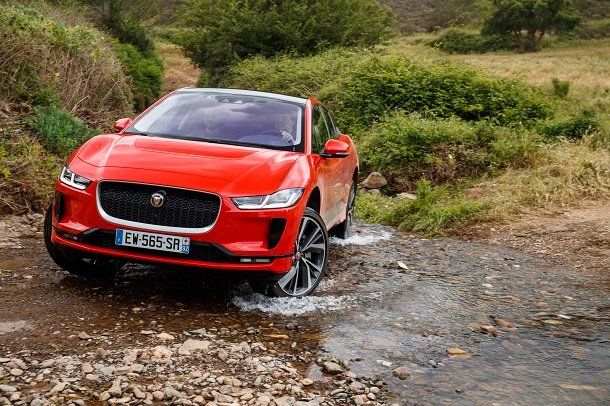
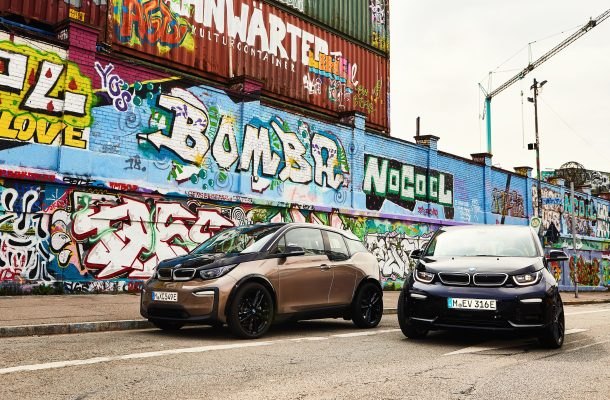


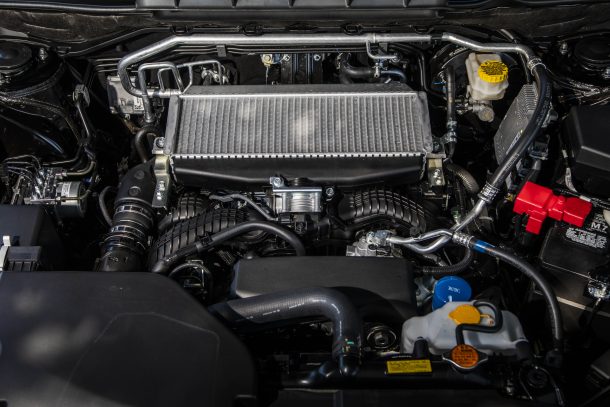
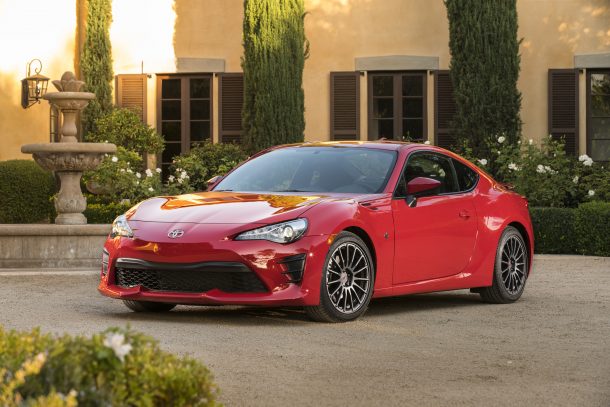

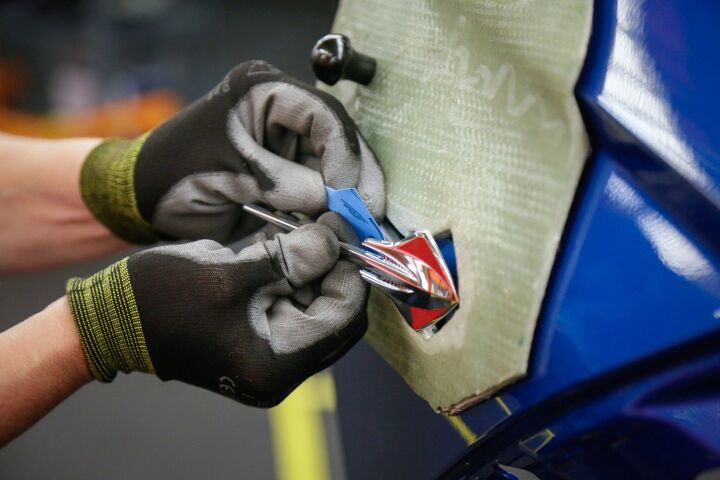




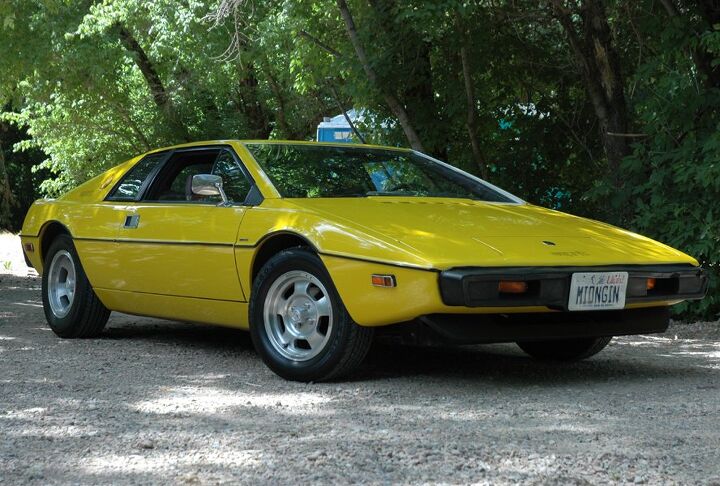













Recent Comments